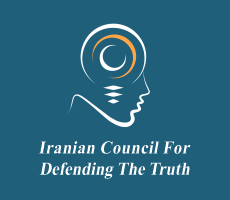The US during last year has been experiencing various social developments. It is argued that these challenges occurred, as there have been serious social gaps in American society for a long time. The shameful legacy of racism came to a head in the past year, and economic inequality rising since the late 1970s (and especially since Bill Clinton took office in 1993) has become an undeniable issue. I think both will be more effectively tackled now that a national commitment to reform has emerged and a new administration is in power.
I think the established political structure in the US is able to cope up with these challenges and solve the social problems. Of course, federalism can make united and coherent action problematic, but internally, this is a very diverse and (especially in hard times) creative democracy, and the suffering of the pandemic and the undeniable scourge of police brutality make widespread action—including structural improvements in governing– necessary.
Economists seem optimistic about the effects of the huge new recovery law (the $1.9 trillion covid relief bill) he got passed. The administration’s promise to be more supportive of labor than his two Democratic predecessors, and to back a higher minimum wage and expanded health care should be consequential. The US at this point is doing more toward pandemic recovery than the EU.
Some scholars, like Richard Hass, believe that the Post-American era has begun. But, I sure don’t think the US is collapsing. One hopes that under Biden democracies will join in common efforts to restrain Chinese autocracy, end terrible wars, and promote action to curb climate change. China and Russia are irresponsible autocracies that (obviously) need to change. Change is probably more likely with Russia, since it has an increasingly active, reform-oriented population. China, on the other hand, is only becoming more autocratic. These are huge problems that must invoke more united action by democracies, old and fledgling.
Governments like Iran are special cases. The American government did a terrible thing when it secretly engineered the overthrow of Iran’s first and only democracy in 1953. Sadly, not many Americans are aware of that sordid history. What can democratic forces do to encourage a return to that kind of democracy in Iran? Will the Iranian people again see their 1950s experiment with democracy? Why let Dwight Eisenhower and the British oil monolith destroy democracy in Iran?
In terms of much more attention to diplomacy, Biden prefers multilateralism, but clearly he also wants to send the power signal most new presidents engage in, with the attack on the forces in Syria. He seems to have abandoned Obama’s support for Saudi Arabia’s war in Yemen, and Trump’s enthusiastic support for Prince Bin Salman.

